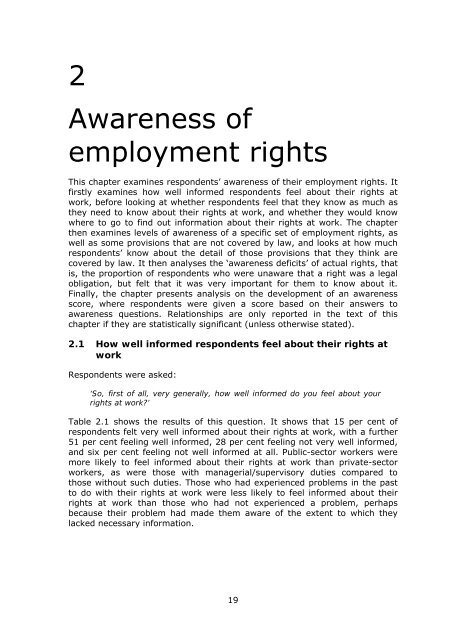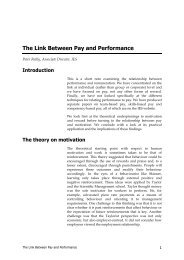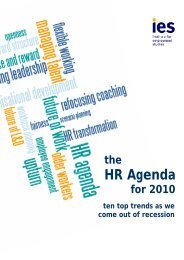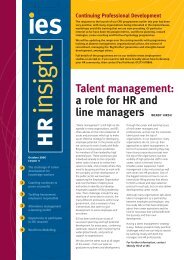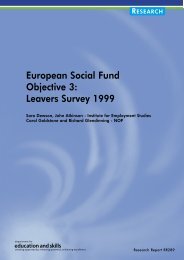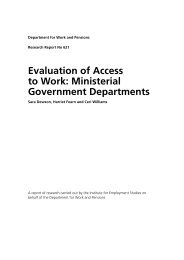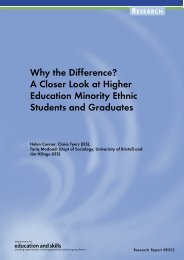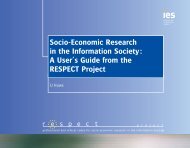Employment Rights at Work: Survey of Employees ... - DTI Home Page
Employment Rights at Work: Survey of Employees ... - DTI Home Page
Employment Rights at Work: Survey of Employees ... - DTI Home Page
- No tags were found...
You also want an ePaper? Increase the reach of your titles
YUMPU automatically turns print PDFs into web optimized ePapers that Google loves.
2Awareness <strong>of</strong>employment rightsThis chapter examines respondents’ awareness <strong>of</strong> their employment rights. Itfirstly examines how well informed respondents feel about their rights <strong>at</strong>work, before looking <strong>at</strong> whether respondents feel th<strong>at</strong> they know as much asthey need to know about their rights <strong>at</strong> work, and whether they would knowwhere to go to find out inform<strong>at</strong>ion about their rights <strong>at</strong> work. The chapterthen examines levels <strong>of</strong> awareness <strong>of</strong> a specific set <strong>of</strong> employment rights, aswell as some provisions th<strong>at</strong> are not covered by law, and looks <strong>at</strong> how muchrespondents’ know about the detail <strong>of</strong> those provisions th<strong>at</strong> they think arecovered by law. It then analyses the ‘awareness deficits’ <strong>of</strong> actual rights, th<strong>at</strong>is, the proportion <strong>of</strong> respondents who were unaware th<strong>at</strong> a right was a legaloblig<strong>at</strong>ion, but felt th<strong>at</strong> it was very important for them to know about it.Finally, the chapter presents analysis on the development <strong>of</strong> an awarenessscore, where respondents were given a score based on their answers toawareness questions. Rel<strong>at</strong>ionships are only reported in the text <strong>of</strong> thischapter if they are st<strong>at</strong>istically significant (unless otherwise st<strong>at</strong>ed).2.1 How well informed respondents feel about their rights <strong>at</strong>workRespondents were asked:‘So, first <strong>of</strong> all, very generally, how well informed do you feel about yourrights <strong>at</strong> work?’Table 2.1 shows the results <strong>of</strong> this question. It shows th<strong>at</strong> 15 per cent <strong>of</strong>respondents felt very well informed about their rights <strong>at</strong> work, with a further51 per cent feeling well informed, 28 per cent feeling not very well informed,and six per cent feeling not well informed <strong>at</strong> all. Public-sector workers weremore likely to feel informed about their rights <strong>at</strong> work than priv<strong>at</strong>e-sectorworkers, as were those with managerial/supervisory duties compared tothose without such duties. Those who had experienced problems in the pastto do with their rights <strong>at</strong> work were less likely to feel informed about theirrights <strong>at</strong> work than those who had not experienced a problem, perhapsbecause their problem had made them aware <strong>of</strong> the extent to which theylacked necessary inform<strong>at</strong>ion.19


